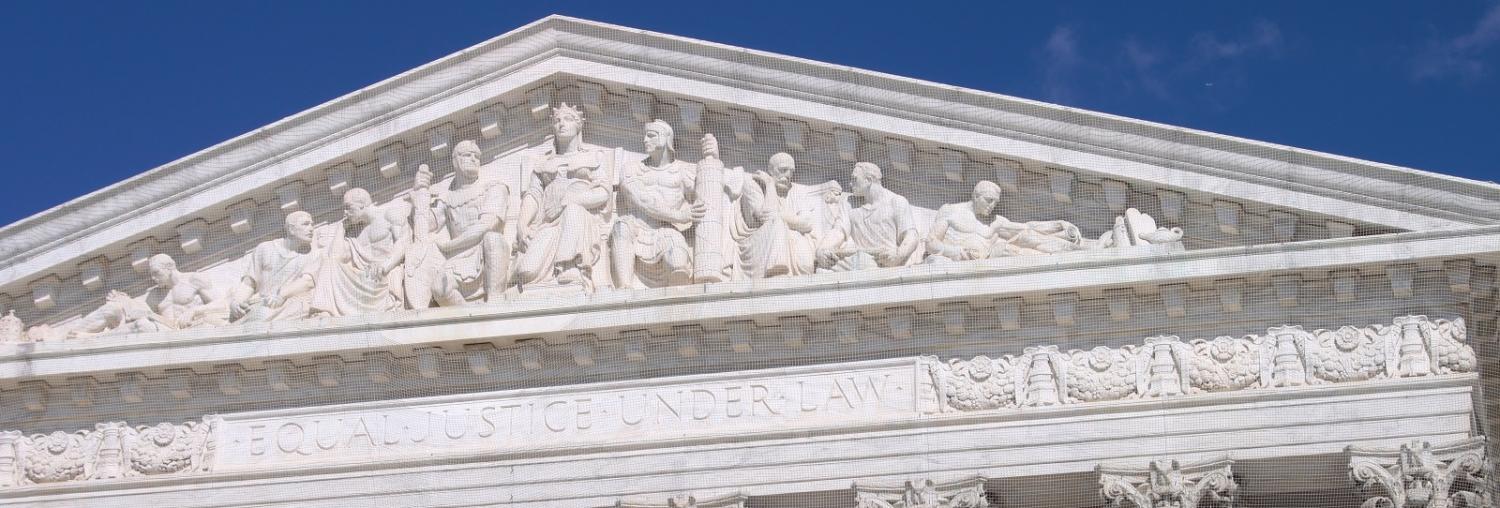It is often said that a week is a long time in politics, but in the United States the weekend saw the political and legal landscape change almost by the hour.
On Friday evening District Judge James Robart granted a temporary restraining order with nationwide effect suspending the travel ban contained in President Trump’s executive order made on January 27. Judge Robart granted the order after accepting the arguments of Washington State and Minnesota that the executive order violates the Constitution’s guarantee of equal protection and the first amendment’s establishment clause, infringes the constitutional right to due process, and contravenes provisions of the Federal Immigration and Nationality Act. The temporary order was to be effective for 14 days pending argument as to whether the travel ban should be made the subject of a permanent injunction.
On Saturday, the State Department announced that it had reversed the visa revocations of the tens of thousands of individuals affected by the travel ban, thereby permitting them to travel to and enter the United States. This followed Customs and Border Protection informing airlines on Friday night that travellers from the seven affected Muslim-majority countries holding valid visas should be permitted to board flights to the United States.
The President took to Twitter early on Saturday morning, not only to voice his disapproval of Judge Robart’s ruling, but to question his authority to make the order, tweeting 'The opinion of this so-called judge, which essentially takes law enforcement away from our country, is ridiculous and will be overturned'. Soon after, using words reminiscent of the then Australian prime minister John Howard's declaration in 2001 that 'We will decide who comes to this country and the circumstances under which they come', Trump tweeted: 'When a country is no longer able to say who can, and who cannot, come in & out, especially for reasons of safety & security – big trouble!'
By Saturday night, the Department of Justice had filed a request for an emergency stay of the temporary restraining order with the US Court of Appeals for the Ninth Circuit on grounds that it 'contravenes the constitutional separation of powers ... harms the public by thwarting enforcement of [the order]' and 'second-guesses the President’s national security judgment about the quantum of risk posed by the admission of certain classes of aliens and the best means of minimizing that risk'.
On early Sunday morning the Court rejected the application for an emergency stay and gave lawyers for Washington State and Minnesota until 2:59am Monday morning to file legal papers, and the Department of Justice until 6pm Monday evening to file its reply. A three-judge panel will then decide whether to schedule a hearing or issue a ruling.
Legal experts in the United States are divided on whether the executive order is indeed in violation of the Constitution and federal law, however they agree that this matter is likely to eventually be heard by the Supreme Court of the United States.
Emeritus Professor Alan Dershowitz of Harvard Law School has called for the courts to take a 'calibrated and nuanced approach' and believes that the issues at stake are those on which reasonable people may disagree. In contrast, Karen Tumlin, Legal Director of the National Immigration Law Center, is of the view that the executive order is unconstitutional.
If the case does indeed reach the Supreme Court, there is the real possibility that the Justices may divide equally 4:4 as they did in the Court’s June 2016 decision in United States v Texas. In that case, the Court heard an appeal against an injunction issued by Judge Andrew Hanena to block executive actions on immigration issued by President Obama in November 2014, which would have protected as many as five million undocumented immigrants from deportation and allowed them to legally work in the United States. As the Supreme Court was equally divided on the issue, the decision of the Fifth Circuit Court of Appeals upholding the injunction stood, thereby blocking President Obama’s plans.
Last week saw the announcement by President Trump of Judge Neil Gorsuch as his nomination to fill the ninth spot on the Supreme Court left vacant by the sudden death last year of Justice Antonin Scalia. Judge Gorsuch, described as 'a conservative intellectual and a Constitutional originalist', is widely expected to tip the balance of the Court to a 5:4 split favouring his Republican nominator. However, his nomination must first be confirmed by the Senate, which may be impacted by the vow by many Democrat Senators to filibuster the nomination. This is unless Republicans decide to take the 'nuclear option' - advocated by President Trump - and do away with the filibuster entirely.
After the momentous events of the past week, one can only wonder, what constitutional, legal and political challenges will be produced by the third week of the Trump Presidency.
The travel ban story so far ...
Main photo courtesy of Flickr users Thomas and Melody Banneck

